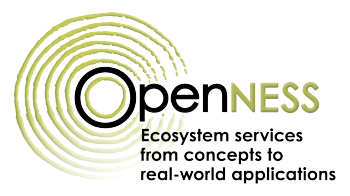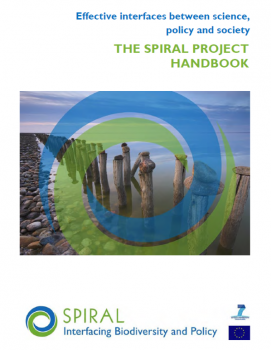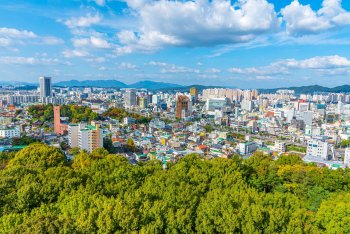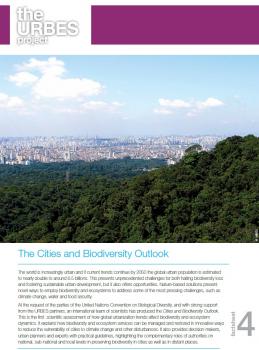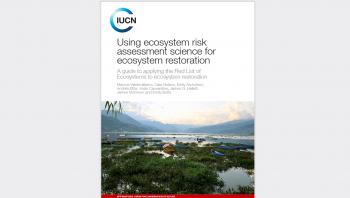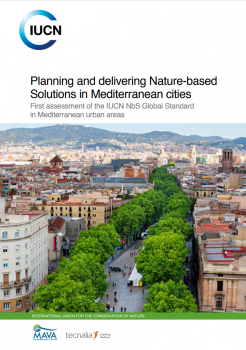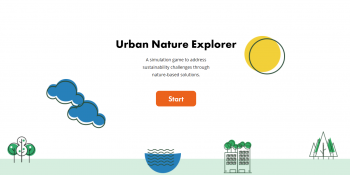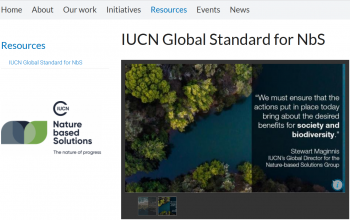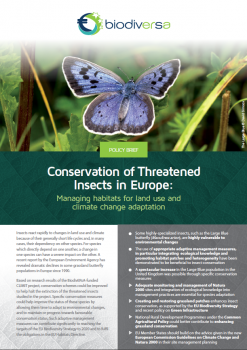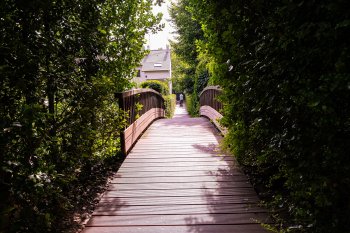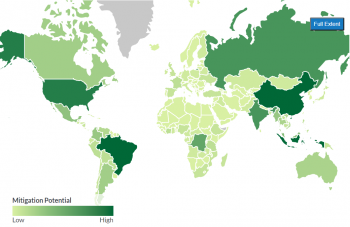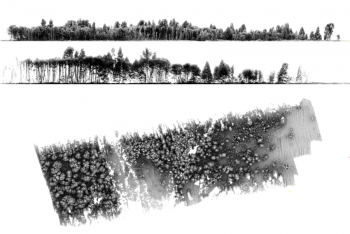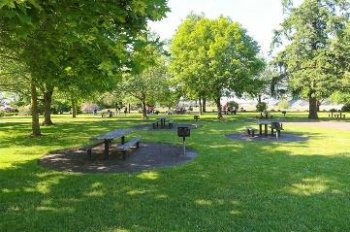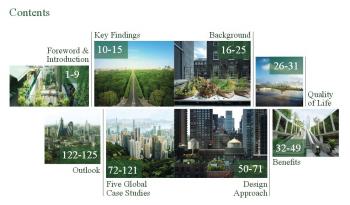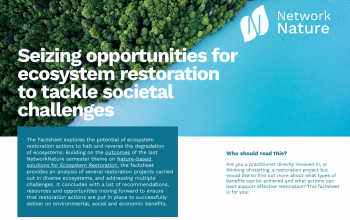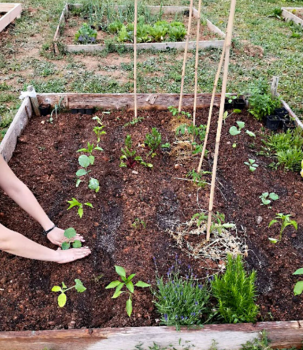Marketplace
Method Factsheet - Revised Universal Soil Loss Equation (RULSE)
The Revised Universal Soil Loss Equation (RUSLE) is an empirical erosion model recognised as a standard method to calculate the average risk of erosion on arable land. It developed from the Universal Soil Loss Equation (USLE) developed in the US Department of Agriculture and has other similar
The SPIRAL Project Handbook on Effective interfaces between science, policy and society
This handbook provides a manual for projects and individuals interested in designing or improving interfaces between science, policy and society. It is challenging – but important – to establish appropriate connections between the diverse insights and perspectives of scientists and other
NbS Financing and Entrepreneurship in UrbanByNature Hubs
This report reflects on the state of nature-based financing and entrepreneurship in four UrbanByNature hubs to unlock the implementation of nature-based solutions (NbS) and relates to Connecting Nature’s task 5.5 “Understanding nature-based financing and entrepreneurship in UrbanByNature hubs to
The Cities and Biodiversity Outlook - URBES Factsheet #4
This Factsheet highlights some of the mian highlights from the Cities and Biodiversity Outlook - the first scientific assessment of how global urbanization trends affect biodiversity and ecosystem dynamics. It explains how biodiversity and ecosystem services can be managed and restored in
- Paper
Nature-based solutions coupled with advanced technologies: An opportunity for decentralized water reuse in cities
Decentralized water reuse in cities is a prominent alternative to mainstream top-down models for urban water treatment, which are based on centralized, linear dynamics of resource management. In this sense, Nature-based Solutions (“green” technologies) coupled with advanced technologies (“grey”
Using ecosystem risk assessment science for ecosystem restoration: A guide to applying the Red List of Ecosystems to ecosystem restoration
This guide was developed to promote the application of the science of ecosystem risk assessment, which involves measuring the risk of ecosystem collapse, in ecosystem restoration. It explores how the IUCN Red List of Ecosystems and ecosystem restoration can be jointly deployed to reduce risk of
NeworkNature Annual Event Report
This Report provides a summary of the presentations, panel discussions and parallel sessions of the NetworkNature Annual Event "Achieving the EU Green Deal through nature-based solutions", held on 21st October 2021.
Planning and delivering Nature-based Solutions in Mediterranean cities
This report, published by the IUCN Center for Mediterranean Cooperation, shows the results of an initial assessment of a number of selected projects in Mediterranean cities against the IUCN Global Standard. The projects have been chosen to uniformly represent the climatic peculiarities and
Urban Nature Explorer
A simulation game to address sustainability challenges through nature-based solutions.
IUCN Global Standard for NbS
Nature-based Solutions (NbS) are a powerful ally to address societal challenges, such as climate change, biodiversity loss and food security. As the world strives to emerge from the current pandemic and move towards the UN Sustainable Development Goals, it is imperative that future investments in
Conservation of threatened insects in Europe
The "Conservation of threatened insects in Europe" policy brief is focusing on the conservation of threathened and vulnerable insects in the context of changing land use and climate. This brief builds on the BiodivERsA-funded CLIMIT project, lead by Dr. Josef Settele. The brief gives
Pathways for Systemic Integration of Nature-Based Solutions
In this report, using the examples of climate change and biodiversity, we examine how stepping stones can be aligned to generate promising pathways for mainstreaming nature-based solutions that can contribute to diverse sustainability agendas in cities.
Natural Climate Solutions World Atlas
Meet the new and improved NCS World Atlas! This online tool developed by Nature4Climate with support from The Nature Conservancy demonstrates opportunities for countries around the world to view how natural climate solutions (NCS) alongside emission reduction strategies, can help them reduce their
- Document
Decision support tool : an Integrated green grey framework
Guidance on innovations in green grey infrastructure - costed examples and more, see http://eprints.gla.ac.uk/150672/.
Carbomap F-LUX: Lidar information acquired from drones, and processed in real-time
High-performance lidar scanner for environmental surveys. Flown on a fixed wing UAV with advanced specification. Long duration (8 hrs) and long range (1,000 km). Real time lidar data processing: by the time the drone lands, your inventory information inhand!
Connecting Nature Framework report for Ioannina city
The exemplar project for Ioannina city is the restoration of Pirsinela Park, popularly known as ‘the living room of Ioannina’. The objectives of this exemplar project are outlined in the list below: • Connecting nature-people: restore the experiential relationship of residents with the largest
Cities Alive: Green Building Envelope
Can retrofitting cityscapes with vegetation improve the health and well-being of urban citizens? Can we use green facades to capture renewable energy and drive sustainability? Experts from eight skill networks around the world came together in Berlin in 2015 to cross-examine these questions using
- Training
Mapping to support REDD+ planning and secure multiple benefits: toolbox and tutorials for QGIS and ArcGIS
GIS training materials and tools have been developed for use in planning REDD+ activities that deliver multiple benefits. These resources are designed to assist technical staff to undertake spatial analysis to identify areas suitable for specific REDD+ policies and measures, and which are likely to
NetworkNature Factsheet: Seizing opportunities for ecosystem restoration to tackle societal challenges
This factsheet explores the potential of ecosystem restoration actions to halt and reverse the degradation of ecosystems. Building on the outcomes of the last NetworkNature semester theme on Nature-based solutions for Ecosystem Restoration, the factsheet provides an analysis of several restoration
NbS Financing in Front Runner Cities
Connecting Nature aims to support cities in securing financing to support the large-scale implementation of nature-based solutions. Within a relatively short period of three years, Connecting Nature has had a major impact in raising the knowledge and awareness of partner cities about alternative
- ‹ previous
- 48 of 55
- next ›

